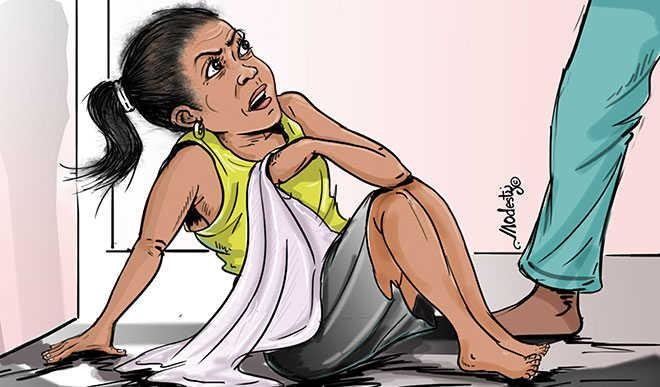Nigeria’s rape problem
As young girls, we were told, to sit a certain way, crossing our legs, poised daintily, making sure not to take up too much space on the chair. When I was starting university, I remember my mother cautioning me to always move in crowds. Never to walk alone or be the only girl in the […]

As young girls, we were told, to sit a certain way, crossing our legs, poised daintily, making sure not to take up too much space on the chair. When I was starting university, I remember my mother cautioning me to always move in crowds. Never to walk alone or be the only girl in the company of boys. She warned me to avoid dark corners and dress responsibly. As a young undergraduate, I took those words to heart and stayed within my comfort zone- the classroom, hospital, and hostel. Those were my safe haven.
When I started practicing, my senses were suddenly assaulted with different kinds of sexual assault. A teenager raped by an adult male cousin in her bedroom. A young boy sexually assaulted in the Islamiyya toilet. Little girls molested abducted and molested in abandoned buildings close to their homes. A toddler violently raped by a neighbour. An eight-year-old defiled by her a teacher in her school. A middle-aged woman raped by her boss. An elderly woman violated in her house by thieves. And so on and so on.
Suddenly the narrative changed. Or did it? Has the narrative always been the same or it is the understanding of our rape culture, instead, that changed? Have we evolved from blaming the victim to realizing that a toddler running around in diapers cannot actually seduce a fully grown man? Working with these patients, listening to their stories and experiencing some of their pain and outrage, has significantly changed my outlook toward the disease that is Rape in Nigeria.
From Nyanya to Jere to Koki to Ikot Ekpene, the story is the same. Women of all ages, harbour that secret fear that the men they know can suddenly turn berserk and do unspeakable things.
Every day, we hear of these stories, on our radios, TVs or social media and yet we do not want to acknowledge we have a problem. Because when we acknowledge it, it means we have to tackle it. And when we tackle it, many will face the wrath of the law. This means hundreds of arrests of men of all cadre; the rich and the poor, the politicians and their area boys, the business tycoons and their lackeys. All of them. And nobody is ready to wage that war. Yet.
A couple of years back, a group of women professionals that I belonged to wanted to carry out a peaceful walk in order to bring to light the rising number of rape cases in the state. Not only were we refused a permit, but we were warned not to go down that road as doing so would bring bad publicity to the state. Bad publicity ke? The politicians are doing that all by themselves! And so, the cases of rape continue to rise. Katsina today, Edo tomorrow. And even with the introduction of the life sentence for the perpetrators, the number of people convicted in this country remains abysmal. I will tell you why.
It is only where rape is concerned that forensics in Nigeria becomes an issue. Suddenly, we don’t have enough labs. The test kits are expensive. We don’t have the manpower. However, a quick poll in any of the tabloids in Nigeria, with the question ‘I suspect my wife is cheating on me. How do I confirm that our children are even mine?’ will reveal that: Indeed, we have a good number of DNA labs in the country and Nigerians are knowledgeable about this stuff. Some will even go as far as giving you specific addresses.
So why don’t we use these forensics to nail the culprits and subsequently jail them? It’s because subconsciously, we feel that life imprisonment is too big a price to pay for rape. ‘Is it not ordinary rape? She should forgive and forget abeg! Na rape, he rape, he no kill person.’
That is why, the people in a neighbourhood in Katsina, pressured the young parents whose baby was raped to drop charges. Their reasoning? A 56-year-old man’s life would be ruined. What would happen to his two wives and a dozen children? The stigma would be too much. ‘Dan Allah, a yafe!’ Nobody spared a thought to the baby who had lost urinary continence. Nobody, absolutely nobody, thought about the trauma those parents would go through, day after day, emotionally and financially as they tried to heal their child. Nobody. And so, once again, the victims are silenced.
It is time we wake up from our collective slumber and realize that we have a gigantic problem of monumental proportions on our hands. Acknowledge the numbers, condemn and advocate against it. Investigate thoroughly all cases of alleged sexual assault with the use of forensics. Those found to be guilty to be swiftly prosecuted and sentenced. This will serve as a deterrent to all closet rapists and rape apologists. Then and only then will we be able to curtail this societal menace.
It is time to face the hard truth: Nigeria has a rape problem.
